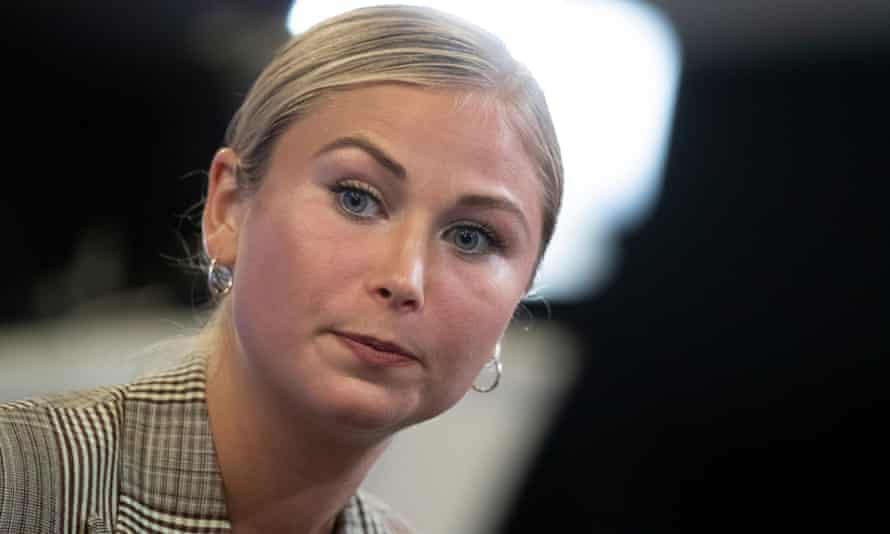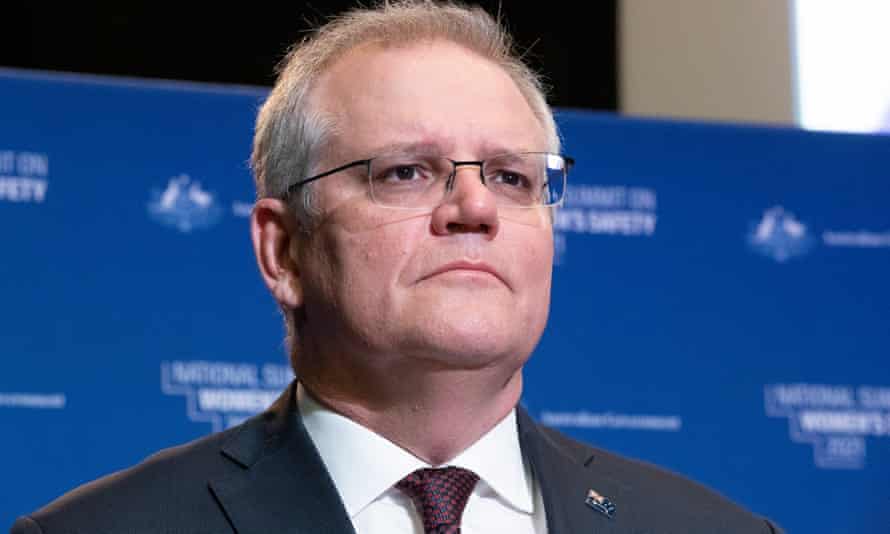Extract from The Guardian
Scott Morrison has tried to reset himself as a listener. But his keynote address to a summit on women’s safety has left some underwhelmed and others furious.

Last modified on Mon 6 Sep 2021 16.43 AEST
Let’s just say the buildup had been less than ideal.
In the parliamentary sitting week immediately before Monday and Tuesday’s National Summit on Women’s Safety, the Morrison government had passed legislation giving effect to some of the recommendations of the landmark Respect@Work inquiry.
But omitted from this legislation was the most important recommendation – a change that would have imposed a duty on Australian employers to stamp out workplace sexual harassment.
On the weekend before the summit, sexual assault survivor Grace Tame, the Australian of the Year, had made her views known during a conversation with Peter FitzSimons, a Sunday columnist for the Nine newspapers.
FitzSimons asked Tame whether Scott Morrison had failed. “Yes,” she said. She cited that failure to implement all of the recommendations from Respect@Work – part of a “clear pattern of denial, minimisation, ultimately dismissal of women’s issues”.

“You’ve got Brittany Higgins, Christine Holgate, Julia Banks …,” Tame said.
“Really, this summit is an extension of that. It’s been so poorly organised, it’s incredibly secretive, it’s also very exclusionary.”
The summit had been put together by the government in part to respond to the cultural reckoning triggered by Higgins.
The former Liberal party staffer’s allegation of rape by a more senior colleague after hours in parliament house didn’t so much trigger a national conversation as unleash a torrent of pent-up frustration about the stubborn sameness of things thriving behind the veneer of societal progress.
The summit was a gesture of atonement. But, again, the government tripped over its own feet. Higgins says she wasn’t invited to participate in the summit until the ACT Victims of Crime Commission arranged for her to be a delegate.
The keynote speaker on the opening day was Scott Morrison, the prime minister who managed to infuriate many Australian women by fumbling the fallout of the Higgins allegations in full public view.

Morrison’s keynote on Monday was an attempt at a reset. The political objective seemed clear. He fronted as a prime minister who had learned to listen to the adversity women face in their everyday life (as opposed to prioritising managing inconvenient adversity in his own prime ministership).
“Right now too many Australian women don’t feel safe and right now they are not safe and that is not OK,” the prime minister said. “There is no excuse and sorry doesn’t cut it.
“We have to talk about the way some men think they own women – about the way some women are subject to disrespect, coercion and violence. This must continue to change. Because if not now, when?”
Higgins was underwhelmed. As the prime minister spoke, she delivered her verdict on social media. “While I respect the prime minister Scott Morrison’s ‘ambitious spirit’ for the National Women’s Security Summit 2021 – I just can’t match this government’s actions with the platitudes and warm sentiments they are all extending today,” she said.
As part of the evidence of listening, the prime minister also referenced correspondence from women that had come to him during the cultural reckoning, including a page of “cursive script” outlining a long-buried rape allegation and a lifetime of suffering. But Tame was furious about the prime ministerial sharing.
“Scott has just finished his opening keynote address at the Women’s Safety Summit in which he appropriated private disclosures from survivors to leverage his own image,” she declared on Twitter. “Gee, I bet it felt good to get that out.”
Morrison seemed to grasp on Monday that a number of women were still angry.
But the prime minister seemed to think the solution to the tempest was that he should be forgiven.

Having the summit, Morrison said, was a gesture of “shared determination”. Some had come to the summit with personal experiences of brutality. Some were there because of a lifetime of advocacy. “And then there are others of us who have come here with open ears and open hearts to learn from your experiences and to make the changes we need to make for the better.
“So, let us gather together in that sense of unity, in that sense of shared respect for each other, for what has brought us all to the table.”
Respect is a worthy objective.
But the thing about respect is it has to be earned.
Women such as Tame have won the respect of a nation because they survived lived experiences that are universal, and unspeakable, and they deploy these experiences to make structural change.
Listening – and Morrison on Monday presented himself as a leader who is now listening – is certainly a start.
But Higgins is exactly right: platitudes and warm sentiments won’t cut it.
The necessary precondition for respect remains action.
No comments:
Post a Comment